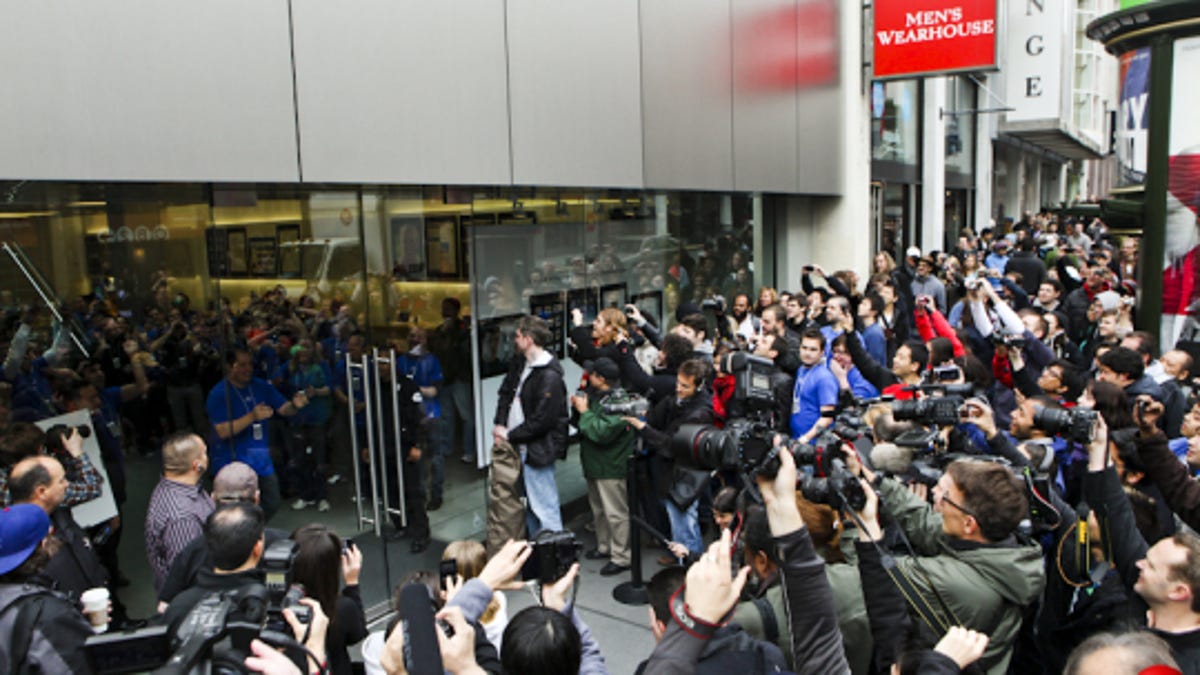Little divides Apple, music publishers on cloud deal
Negotiations between Apple and music publishers to license an iTunes cloud music service are going well. Hopes are high that an agreement will be reached soon, but it's not a slam-dunk.

Hopes are high in the music sector that Apple will have all the licenses it needs to launch a cloud music service in time for the company's Worldwide Developers Conference, which starts on June 6.
Negotiations between Apple and music publishers have begun in earnest only recently but the amount of money that separates the two sides from reaching a deal is relatively small, according to two sources with knowledge of the talks. That said, these are cloud-licensing contracts, which are new and complex and there are still several ways Apple's service could be delayed, insiders say.
Apple has wrapped up licensing agreements with three of the four top record companies, including EMI Music, Warner Music, and Sony Music. CNET reported last week that Apple and Universal Music, the largest of the major record companies, could ink a deal possibly this week. This would give Apple recorded-music rights to most of the popular music out there. To offer a fully functional cloud music service though, Apple still needs publishing rights.
The good news is that almost everybody--with the exception of Google and Amazon, which launched their own cloud music services recently--wants to see Apple's cloud offering sooner rather than later. The record companies hope that the cloud can lift sinking song sales by offering consumers the ability to store music on a third party's servers and access it from anywhere they can connect to the Web. Music buyers won't have to worry about clogged or malfunctioning hard drives or syncing songs to different devices.
But here's how the service could still get held up:
Related links
• Exclusive: Apple near cloud-music deals
• Expect Apple to charge for music cloud
• Music labels to Google: We're counting on Apple
First, there's only two weeks left before WWDC. That doesn't leave a lot of time. Apple must negotiate with all the large music publishers individually instead of a single body, such as the National Music Publishers Association (NMPA), the publishers' trade group. Here's a good place to explain why Apple's deals with the labels doesn't mean the company has all the licenses it needs.
The labels own the recording rights but not the publishing rights. Let's take for an example the longtime hit song "Twist and Shout." If a digital retailer wants to sell The Beatles' cover of that song, the merchant must pay EMI and Apple Corp. (the company that represents the band) for the sound recording of the Beatles performing that tune. The retailer would then have to pay whatever publishing company represents Phil Medley and Bert Russell, the men who wrote the song's words and music, what is known as mechanical licensing fee. If the retailer wanted to sell the Isley Brothers' version of "Twist and Shout," Medley and Russell would collect again.
While the money that separates Apple and the publishers isn't much, negotiations over these kinds of licenses have a history of dragging on even under the best of circumstances, and these aren't the best of circumstances.
Cloud services are new. There's no precedent for how to license them. It would be easy if the talks were about Compact Discs and downloads. Congress set a statutory rate for mechanical fees at 9.1 cents per song sold. Any retailer that wants to sell songs via download or on CD pays that rate, which is due to be reviewed by the Copyright Royalty Board sometime next year. The cloud, however, wasn't covered under that license. Publishers and Apple must figure out terms for the cloud and do it from scratch.
It's interesting to note that the rights for sound recordings are not bound by any statutory rate, which means the labels are free to pocket whatever amount they can negotiate.
According to music industry sources, there seems to be some tension between the publishers and the labels. A source from the publishing side said the labels have soaked up most of the money that Apple is prepared to pay for cloud-licensing rights. This kind of tug-of-war between the labels and publishers is not unusual.
Related links
• Amazon's key weapon in cloud music wars: Lady Gaga
• iTunes song-sample plan runs into music publishers
• iTunes rolls out 90-second song previews
A source from the recorded-music side said that the labels who have licensed Apple have negotiated only what their songs are worth and if Apple is unwilling to pay the publishers' price, the publishers don't have to provide licensing. The source suggested that this is a negotiating ploy and that Apple is trying to pit the labels and publishers against each other.
These potential roadblocks notwithstanding, I'm still expecting for Apple to roll out a cloud-music service in June. The labels would like to see Apple one-up Amazon and Google, which chose not to obtain licenses for their cloud services. Sure, they want to see an challenger to Apple's iTunes in digital music, but a challenger that is going to play by their rules.
The labels and publishers want Apple to hit a home run with its cloud service and help sell the cloud to consumers, many of whom still don't know or may not care about ubiquitous access to music. That's the other threat to all of this. All of these cloud services will likely charge, including Apple's, and we still don't know whether consumers are willing to pay.

